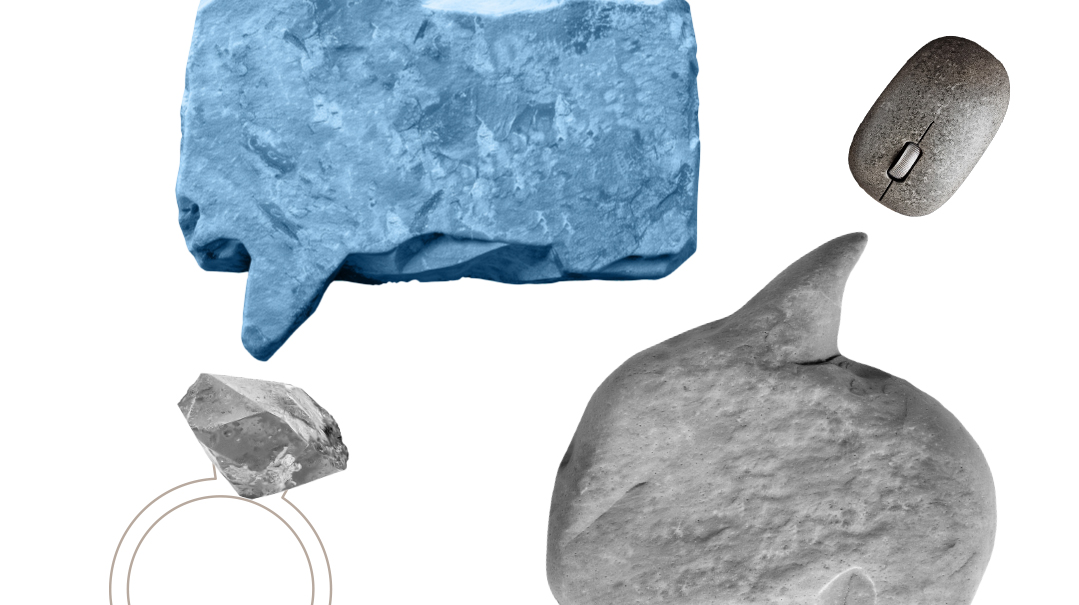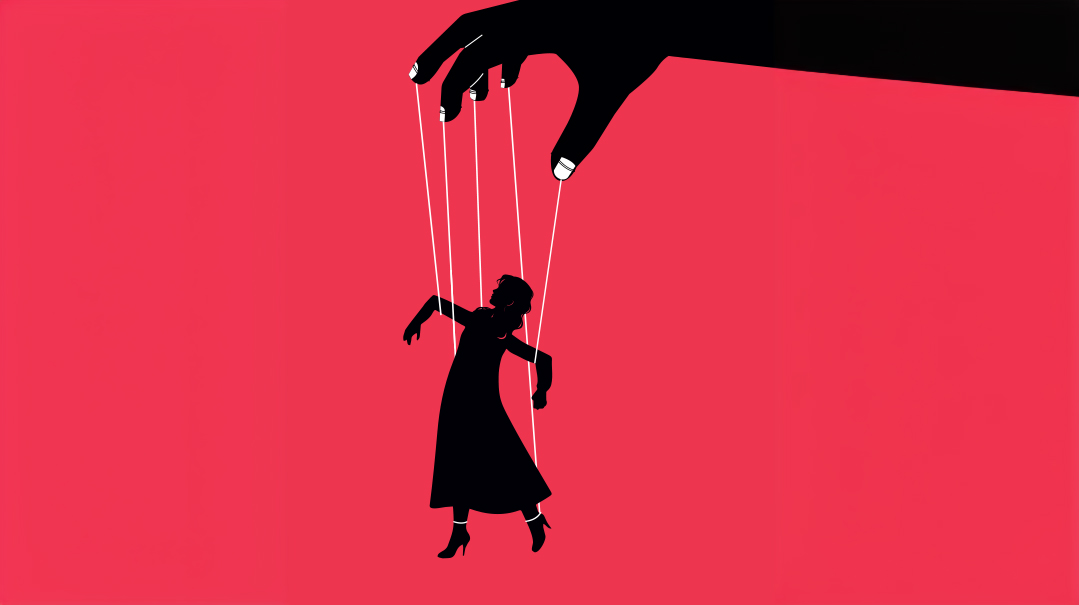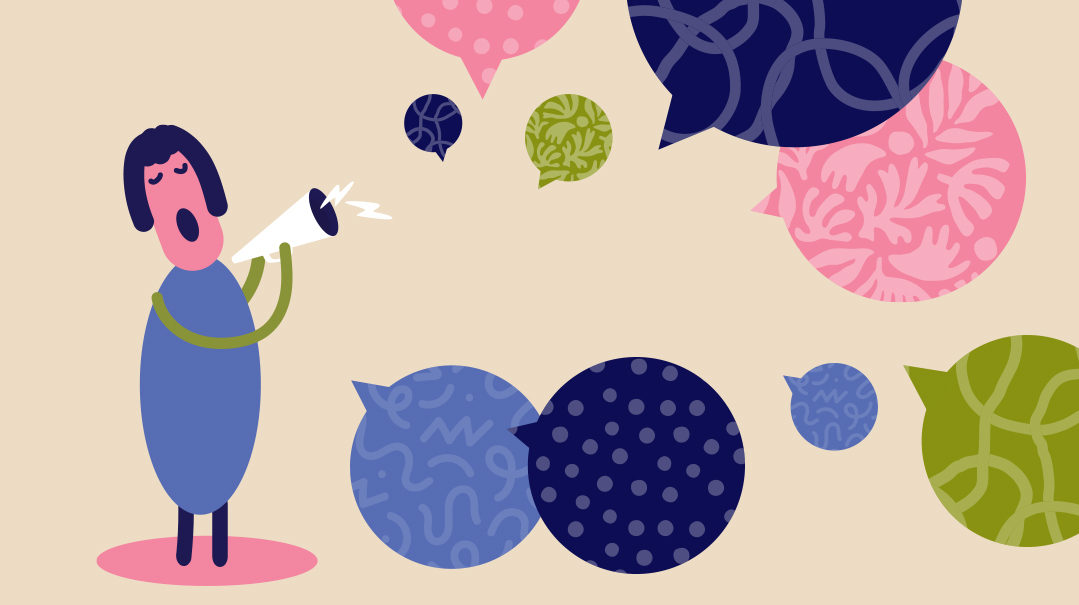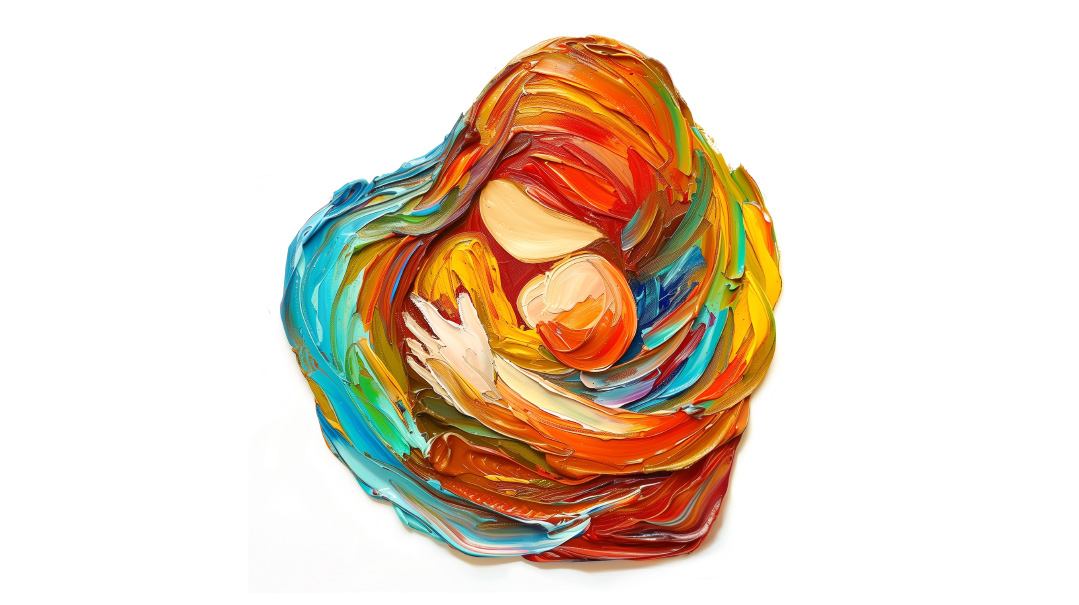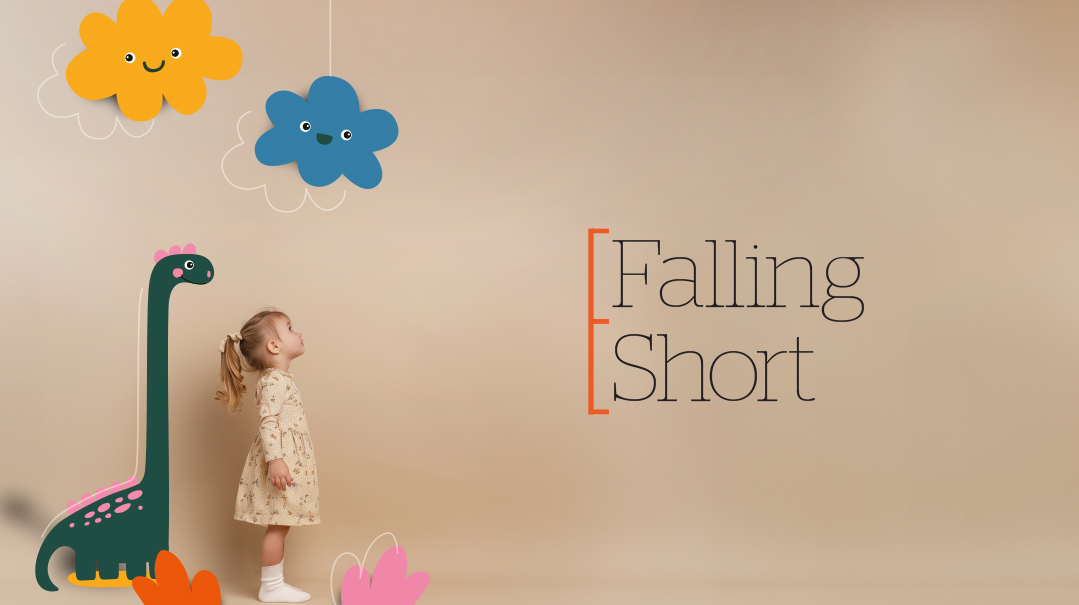Under the Same Night Sky

“Maybe your soul is here to make this choice.” A South Korean orphan picked the path less traveled

Chana Bilek’s voice is warm and inviting. As we speak over the phone, I hear the clatter of dishes being washed and the soft voices of children who’ve sneaked out of bed to listen to their mother’s story once again…. It’s a night in the life of a typical Jewish mother. And yet I know that Chana’s life is anything but typical.
Chana, originally Yoon-Hee, was born in South Korea in 1982. When she was a mere two years old, she was given over into the care of an orphanage. She was sickly, and the staff at the orphanage nursed her back to health over several months. They then referred her out for adoption.
Meanwhile, across the world in Virginia, Jack and Marcy Stein* were looking into adopting a child. The Steins were elated when they received word that a little South Korean girl was available for them. With the paperwork complete, they drove up to Baltimore Washington Airport to meet their new daughter.
It was a nervous little Yoon-Hee who came off the plane with her social worker to greet her new parents. Having refused to eat anything but chocolate and water on her long trip, Yoon-Hee immediately threw up all over her new father as she entered their car. Despite the rough introduction, Jack and Marcy turned out to be, in her words, “My caregivers and best friends.”
They named her Caitlin Yoon-Hee Stein, or Caty, and helped her recover from the effects of an impoverished babyhood. Caty’s early childhood was idyllic, as she romped through the woods of rural Virginia, played with her dog, and picked blackberries.
Caty’s parents didn’t hide the fact that she was adopted; with the difference between her looks and theirs, they wouldn’t have been able to. Instead, they encouraged Caty to read picture books about Korea and about adoption. They made Asian food for her and gave her little Asian dolls to play with. She also attended a Korean school for a few years with a good friend, also an adoptee from Korea.
Something Out There
When Caty was five years old, she noticed that her neighborhood friends were busy with something called church. “What church do we go to?” she innocently asked her parents. Well, none really, as her parents were completely secular. Caty’s father Jack was Jewish, but unaffiliated. Her mother, Marcy, was raised Presbyterian, but was also secular. In response to Caty’s query, though, the Steins joined a Unitarian congregation. That went well, until the church hired a new preacher. The Steins grew uncomfortable with the preacher’s extreme focus on the New Testament but weren’t sure how to make a change.
The concept of G-d always resonated with young Caty. “It just made sense to me that there’s something out there, beyond this world,” she explains. As a young child, Caty began speaking to G-d every night. She was also inspired by the movie An American Tail, where Fievel, a “Jewish mouse,” is separated from his family on their journey to America. Fievel is comforted with the realization that both he and his family are looking at the same night sky.
Caty really took to that idea. Her birth mother saw the same moon and stars that she saw. She began sending messages through G-d to her birth mother each night, especially on her birthday. “I was sure my birth mother had to be thinking about me on my birthday.”
When Caty was eight, she began asking her parents for a sibling. “Everybody else has siblings to play with,” she’d say. “You adopted me; just adopt another one.” She also put in her request to G-d, just to be sure. Caty’s parents took her seriously. “They never pushed me away when I’d bring up the topic,” she recalls. “It was always, ‘Okay, we can consider that.’ ”
So the Steins applied for adoption again, and Marcy flew to Bangkok, Thailand, for another interview. At last, her new sister, Emily,* arrived. She was four years old. “I was so excited,” Chana says. “I’d finally have a sibling to play with, just like everyone else in the neighborhood. And then this girl arrives, and of course, she doesn’t speak a word of English!” Chana laughs as she remembers her shock. But soon enough, Emily warmed up, and the two sisters did manage to play together, even without a common language.
Caty’s mother, in the meantime, was suffering from what she thought was a terrible virus she’d picked up in Thailand, and was admitted to the hospital. The doctors ran some blood work and gave the 42-year-old happy but shocking news: She was pregnant!
Baby Lisa* arrived exactly nine months after Emily. It was an awesome miracle, to be sure, but also challenging for young Caty who had, until recently, been an only child.
“The school social worker would have me draw pictures of my family, and I’d either leave out baby Lisa or draw her as a teeny little dot on the edge of the paper. I think it was because I hadn’t asked for her,” the grown Chana says in what has now become a family joke. It took Caty a while to learn to share her parents with two siblings.
With three children, Jack and Marcy realized they needed to decide on a religion for their family. They began attending Friday night services at the Reform temple. By the time Caty was in middle school, her mother was lighting Shabbos candles, and the family was sitting down to Sabbath dinner every Friday night. Passover and Chanukah soon replaced Christmas and Easter.
When Caty was 12, the Stein females underwent a Reform conversion. Though this conversion was not halachically valid — Chana refers to it now as her cultural conversion — Caty felt a strong bond form between her and her family, and she was left with a sense that she was home to stay. She chose Hannah as her Jewish name.
As Caty entered her teens, she began asking more and more about her birth history. Finally, around her 13th birthday, her parents handed her an old manila envelope marked “Catholic Charities,” with the original stamp still on it.
“You can have this now,” they told her. It was her confidential records. Caty went to her room and spread all the papers out on her bed. She began reading paper after paper, as if in a daze. The file included her health records; she found out that she’d been extremely sick and malnourished. It also included a police report; she discovered she’d been abandoned in a hotel room. A woman of about 50 had brought her there and left — and had covered her tracks well.
“I felt all my fantasies come crashing down,” says Chana, who clearly remembers the keen disappointment she felt as a young teen. Even more disappointing than what was in the records, was what was absent from the records. “There was no history of my birth or birth family or even my identity.”
Caty had always fantasized about meeting her birth mother one day. She now knew that without even a last name, the chance of finding her birth mother was basically nil. “And my ‘birthday,’ the day when I’d always felt so connected to my birth mother, wasn’t even my real birthday! It was just a date assigned by doctors.”
Caty struggled to work through it all. Who was she? Why had her birth parents abandoned her? Were they still alive? Did they ever think of her? The questions swirled within.
Ultimately, Caty realized she had a choice. “I could pity myself because I didn’t know who I was and be angry at my birth mother for not even writing me a note — I mean, even Little Orphan Annie got a locket — or I could look at all the things I did have.”
Caty eventually came to a positive place. She had family and she had G-d. She’d received what she’d needed from her relationship with her birth mother, and there was probably a good reason that G-d took her out of there.
“If you want to see what your birth parents looked like,” her mother used to tell her, “all you have to do is look in the mirror.” Caty understood that to mean that her past would always be a part of her, but did not have to dictate who she’d be in the future. “I also realized,” says Chana, “that Hashem is a part of the development of human relationships, and the decisions made by each and every person are all part of a larger picture — like pieces in a puzzle” (see poem in sidebar).
In tenth grade, in what was a profound moment for her, Caty was confirmed at the Reform Sunday school. In the meantime, her parents were moving closer to frumkeit. They joined an Orthodox congregation, and eventually, her mother kashered the kitchen and began observing Shabbos. Finally, Marcy, together with her birth daughter, underwent a full Orthodox conversion.
In Caty’s mind it was all a little extreme, and she was sure her mother was just going through some sort of midlife crisis. She remembers coming home from school one day to find her parents’ new rabbi in the kitchen, with his head inside their oven. Caty rolled her eyes in disbelief. What kind of rabbi was this with his head in the oven?
Jack and Marcy got remarried in a kosher ceremony. Chana remembers holding the chuppah poles with her sisters and just shaking her head. “Okaaaay…” she kept thinking.
Then there were new house rules Caty was expected to follow. She couldn’t bring non-kosher into the house anymore and was told to eat non-kosher food on the front porch. “I was like, ‘It’s just a hamburger, guys!’ I really thought they were crazy.” Though Caty displayed her anger openly, her parents continued to express their love and warmth, and they gave her and Emily the space they needed to make their own decision.
At the end of 12th grade, Caty was planning on going to the traditional two-week-long beach party with her high school graduating class. She was peeved when her parents told her no, on the premise that it was dangerous. Instead, they gave her a trip to Israel as a graduation present.
“Of course they were right,” says Chana. “It was dangerous. But at the time, I was like, ‘Oh, yeah, a beach party is dangerous, but going to Israel by yourself is fine?’ ”
Still, one doesn’t turn down a free trip. After searching for a program that would accept her despite her young age, she finally signed up for Isralight, not realizing it was meant for older professionals. Caty felt shy as she eyed the rest of the group at JFK airport, but she soon got comfortable and settled in to the dorm in the Old City.
She immediately took advantage of her newfound freedom, partying and drinking all night on Rechov Ben Yehudah. She’d come back to the dorm toward morning, crash for a couple hours and then board the bus for that day’s trip. She’d wake up only to find herself on Masada or in Chevron.
Finally, Rabbi Binny Freedman (Rav Binny), the director of the program, called her in to his office for a talk. Caty was sure he’d found out that she wasn’t really Jewish, and he was sending her home. She came in and immediately launched her defense. She slapped her hand down on his desk. “Don’t worry, Rabbi, I got this,” she reassured him. “I’m more Jewish than my friends who were born Jewish… My parents are Jewish… I had a bat mitzvah… I know about Shabbos… I make challah…”
Rav Binny asked her to sit down and to tell him her story. When she finally finished, the first thing he told her was that she could stay in the program. (Phew!) Then he began to ask her questions. “Do you believe in G-d?”
“G-d and I are tight,” Caty assured Rav Binny. She twisted two fingers together to demonstrate.
“Do you believe the Torah is true?” Rav Binny asked next.
“Yeah sure,” she answered. “The Torah tells us how to be good people and how to do tikkun olam.”
“Okay. Do you know what halachah is?”
At that, Caty hesitated. “I don’t know,” she said. “Is that sort of like challah?”
Rav Binny smiled and explained to her that halachah is Jewish law, and that the root of the word actually means, to walk. “Through halachah,” he explained, “we’re able to walk with Hashem. That’s how we can join the physical and spiritual worlds.” He gently explained to her that because Reform and Conservative movements don’t follow halachah, their conversions aren’t valid according to Jewish law.
“Do you know that Judiasm believes in reincarnation?” Rav Binny continued.
“No,” Caty answered, surprised. “I know that Buddhism does.”
“If a soul doesn’t finish its job in one lifetime,” Rav Binny explained, “it will come back in another lifetime to reach its goal. Every soul is in This World to repair itself by connecting to Hashem. And just maybe,” he said slowly, “just maybe, your soul is here to make this choice — are you going to be a righteous Noachide or are you going to convert?”
Caty left his office shocked, scared, and overwhelmed. This was the first time she really accepted and understood that she wasn’t Jewish. Now she had to make a decision. And it wasn’t just about her wants and needs anymore; she had a responsibility to her soul to make the right choice.
Caty sat on a porch overlooking the Kosel Plaza and cried and cried. She sat there all night, staring up at the night sky, feeling unable to face anybody. As morning dawned over the Old City, a feeling of deep peace settled over her. She did not want to be a Noachide. She wanted to be accepted by everybody, and by Hashem, as a full Jew.
Caty returned to the States and met with her family’s rabbi, Rabbi Zvi Ron, to speak about converting. Chana recalls their discussion. “Basically, I came in and said, ‘Convert me, Rabbi.’”
Rabbi Ron told her he wouldn’t be able to do that. She’d first need to learn and make significant lifestyle changes. “Here, start with this,” he told her, handing her a stack of books.
Caty desperately wanted to attend Neve in Israel, but until she converted, that option was out. So she registered at Virginia Commonwealth University (VCU) instead, where she threw herself into various Jewish leadership positions. At the same time, she continued to learn and become more observant. By the time Caty’s junior year of college rolled around, Rabbi Ron agreed she was ready.
She sat down with the beis din who reminded her one last time that she could still opt out. They said she was a good person as a non-Jew and didn’t need to take on any more responsibility. Caty refused that offer. They asked her more questions and reminded her that this decision would affect the rest of her life. She told them she understood there was no turning back. After immersing in the mikveh, Caty, now Chana, went back to meet with the beis din, who welcomed her into the fold of Israel. Mazel tov!
After her conversion, Chana completed her senior year with a degree in psychology. But things were changing. She realized she and her Jewish boyfriend of three years would never be at the same level religiously. It was time to move on. Soon after graduation, Chana found herself on a plane back to Israel, headed to Neve.
Once at Neve, Chana became close with Mrs. Levitan, a teacher and shadchan at Neve. Chana began dating, resolving this time to only work within the shidduch system. But she soon found herself becoming increasingly frustrated. Most boys said no to her even before they met, and the others would mysteriously say no after a few dates. After yet another episode where the boy said no to her, presumably because she was Asian, Chana called it quits.
As Chana began her self-proclaimed hiatus from dating, a young man, a baal teshuvah who was learning in Machon Shlomo, came to meet Mrs. Levitan. Canadian born Raffi Bilek was tall, fun-loving, witty, and bright. “You know, I really don’t care what a girl looks like,” he told Mrs. Levitan. Tall, short, thin, fat… black, Asian, whatever…. It doesn’t matter as long as she has good middos.”
Mrs. Levitan nodded. “I think I might have someone for you,” she said.
Chana grudgingly agreed to give Raffi Bilek a try, and only because she trusted Mrs. Levitan. The first date went well and led to more dates, but Chana found it difficult to let down her guard. She’d been down this road before, and the boy always upped and ran at a certain point. Finally, on the fourth date, Raffi turned to her and said straight out, “It’s okay, you can relax.”
“After that I stopped being so formal,” Chana says. “I think it was his way of saying, ‘Don’t worry. I’m not going anywhere.’ ”
On one of their final dates, they were in a souvenir shop where Chana spotted a clown nose and thought it would be funny to try it on. Unbeknownst to her, Raffi was thinking the same thing. They turned to each other at the same time, a clown nose on each of their faces! They celebrated their engagement soon after….
The happy couple got married in Israel, two days before Pesach — because they thought they couldn’t get married the entire Sefirah. “Yeah,” says Chana wryly, “we were new baalei teshuvah. We needed a little educating.” But despite the frenetic time, the wedding was beautiful and lively — with plenty of family and friends, lots of dancing and plenty of clown noses.
Raffi and Chana settled in Israel for the first four years of their marriage, he working on his rabbinical and social work degrees, and she working on her master’s degree in sociology. They had the first of their four daughters while living there. Then, they decided to move back to the States to be closer to family and because there were more job opportunities in the States. They eventually ended up in Baltimore and opened their own practice, The Baltimore Therapy Center. Raffi is the director of the center, and Chana works there as a personal development coach.
In a way, Chana’s life has come full circle, as one of the many types of people she coaches are grown adoptees, helping them face the issues she once had to face. “A big part of my work,” says Chana, “is to help people process their feelings that they’ve pushed away. If you don’t name the pain,” she says, “you can’t respect it. You have to face it and go through it. I help people get unstuck.”
Today, Chana is proud of her Korean heritage, openly displaying books and artifacts given to her in childhood. She also plans to make it back to South Korea with her children one day. At the same time, she readily admits that her Korean identity has faded into the background, while her Jewish self has taken precedence. “At this point, my Korean identity is more about the way I look than anything else,” she says. “I feel like I’ve always had a Jewish soul.”
Some geirim are sensitive to questions; Chana welcomes them. “Yes, you can ask me if I’m Chinese,” she says. “You don’t have to be embarrassed. I was made to look different so that you’d ask and be inspired from my story.” Chana sees her story as one long string of Hashgachah and loving gestures from Hashem. Her hope is that through speaking to audiences, people will be inclined to see the Hashgachah in their own lives, which will propel them toward a loving relationship with Hashem.
Chana’s voice grows thoughtful. “That’s really why we’re all here,” she says, echoing Rav Binny from that long-ago night in the Old City. “We’re here to repair our neshamos by connecting with Hashem.”
*Names changed
Comfort in Verse
The following poem helped the young teenage Caty come to terms with her adoption.
Legacy of an Adopted Child
Once there were two women; who never knew each other.
One you do not remember; the other you call mother.
Two different worlds, shaped to make your one.
One became your guiding star; the other became your sun.
The first gave you life; the second taught you to live in it.
The first gave you the need for love; and the second was there to give it.
One gave you a nationality; the other gave you a name.
One gave you the seed of talent; the other gave you the aim.
One gave you emotions; the other calmed your fears.
One saw your first sweet smile; the other dried your tears.
One gave you up; it was all that she could do.
The other prayed for a child;
and G-d led her straight to you.
(Originally featured in Family First, Issue 753)
Oops! We could not locate your form.

